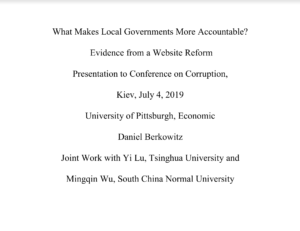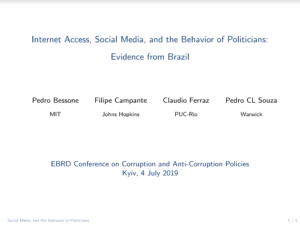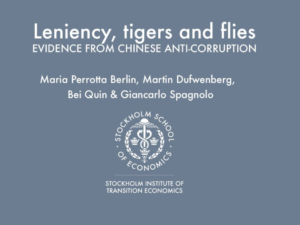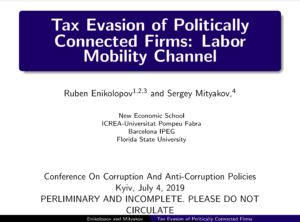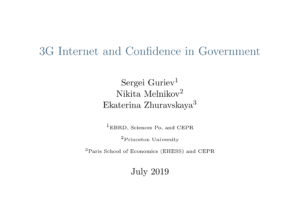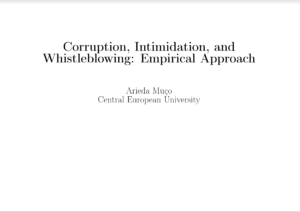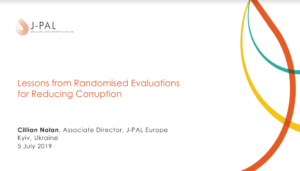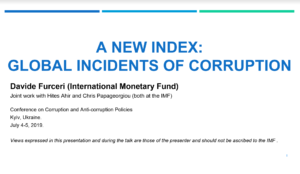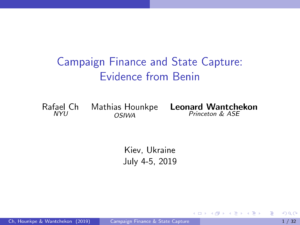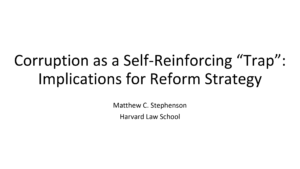- Kyiv School of Economics
- Private: Calendar
- Conference on corruption and anti-corruption policies
Description
Conference on corruption and anti-corruption policies provides a unique forum for academics and policymakers working on corruption and anti-corruption policies to discuss recent research on corruption and anti-corruption policies around the world, anti-corruption experience in advanced economies and emerging markets and implications from research and practical experience for fighting corruption in post-communist countries.
The Conference will give participants an opportunity to look at the phenomenon of corruption from a scientific angle and find answers to such questions as:
- why do researchers believe corruption to be a trap and how to escape it;
- which anti-corruption measures are more effective: systematic and incremental, but slow or rapid and comprehensive;
- why good intentions of policymakers may cause unexpected side effects in the form of manipulation of data and additional incentives for corrupt activity;
- why existing corruption perception indexes are not always appropriate and where to find more reliable indicators;
- how social networks influence politicians and whether they increase their accountability and transparency;
- how artificial intelligence helps to catch bogus firms and how tax administrations can benefit from it;
- which countries accumulate close to half of world GDP in tax heavens.
Two days of the Conference will give you an opportunity to learn about and discuss recent research from such world-renowned research institution as:
- Central European University;
- European Bank for Reconstruction and Development;
- Free University of Amsterdam;
- Harvard University;
- International Monetary Fund;
- John Hopkins University;
- J-PAL;
- New Economic School;
- Pompeu Fabra University;
- Princeton University;
- Stockholm School of Economics;
- University of California at Berkeley;
- University of Pittsburgh.
Research sessions are followed by policy discussions which will feature stakeholders of anti-corruption reform in Ukraine and will focus on its main achievements and areas where progress has not been substantial and rapid enough.
The main speaker of the conference – Sergei Guriev, chief economists at the European Bank for Reconstruction and Development and professor at Science Po, Paris. Sergei is one of the most prominent world economists with interests and expertise in emerging and developing economies.
The Conference of Kyiv School of Economics and European Bank for Reconstruction and Development is organized with the support of International Economic Association, International Renaissance Foundation, Stockholm Institute of Transition Economics. The main sponsor of the event is Dragon Capital. The media partner of the event is LIGA.net.
The languages of the Conference are English and Ukrainian. Interpretation is provided.
Slides from the Conference
July 4th
What Makes Local Governments More Accountable? Evidence from a Website Reform, – Daniel Berkowitz
Internet Access, Social Media, and the Behavior of Politicians: Evidence from Brazil, – Filipe Campante
Leniency, tigers and flies: evidence from Chinese anti-corruption, – Maria Perrotta Berlin
Catching Value Added Tax evaders in Delhi using Machine Learning, – Ofir Reich
Tax Evasion of Politically Connected Firms: Labor Mobility Channel, – Ruben Enikolopov
3G Internet and Confidence in Government, – Sergei Guriev
July 5th
Corruption, Intimidation, and Whistleblowing: Empirical Approach, – Arieda Muço
Lessons from Randomised Evaluations for Reducing Corruption, – Cillian Nolan
A new Index: Global incidents of corruption, – Davide Furceri
Campaign Finance and State Capture: Evidence from Benin, – Leonard Wantchekon
Corruption as a Self-Reinforcing “Trap”: Implications for Reform Strategy, – Matthew C. Stephenson
Hyatt Regency Hotel Kyiv, Ally Tarasovoi St, 5, Kyiv
July 4-5, 2019

